Media | Articles
9 garage consumables you should always have in stock
Sometimes working on our beloved project cars and motorcycles is a more regular occurrence than we wish. These impromptu fixes and repairs that just pop up can be dealt with quickly—provided you have the right supplies on hand.
The list of needed hard parts or spare pieces varies, depending on what you own and the level of DIY-ing you are comfortable engaging in. On the other hand, there are plenty of generic, consumable items that any garage needs. These items can make routine tasks easier, so ensuring they are readily available gives confidence when diving into any project or repair. Here are the nine must-have consumables we think you need in your garage.
Rags/box o’ towels
Spills happen, and there is always some grimy part that needs a good cleaning. While you can use reusable rags, you’re likely to anger your significant other when you grease up the washing machine with them. So instead have a collection of disposable towels, but be sure to contain any oily rags in a metal can with a lid. Not doing so means you could set your garage on fire when you move on to the next project and accidentally throw a spark into the garbage can!
Microfiber cloths
While there are rags for cleaning, let’s not forget the materials designed for delicate surfaces. Think of the times you need to clean glass or wipe down painted surfaces with quick detailer: microfibers are great for this. They even work great for cleaning tools as they are put away at the end of a job. These will also get dirty enough eventually that they need a trip to the washing machine, but be careful about the detergent you use, along with what gets washed with them. These fluffy towels pick up rocks or chips from other garments, so re-using them risks the addition of scratches to whatever finish they next encounter.
Oil and Grease
So many DIY projects involve assembly and disassembly, to the point you might lose some oil while taking something apart. The same happens with grease. Both will need replenishment after assembly, so keep a few bottles of your oil of choice and a tub/tube of grease handy in your garage. For extra points, zip-tie a scrap chunk of hose to the side of the canister: that way you can hold an acid brush to make applying that grease a no-mess affair.
Marketplace
Buy and sell classics with confidence
Razorblades
It’s counterintuitive at times, but being sharp is actually safe. If you need to cut something like a rubber hose, zip tie, or stiff plastic packaging, the safest way is with a blade that isn’t dull. A dull blade moves unpredictably and requires more force to do the job. That’s a recipe for injury, so instead keep a pack of razorblades so you always have a replacement for that dull blade in your knife. Razorblades also make great gasket scrapers (when used carefully) to prevent gouging soft surfaces.
Brake and/or carb cleaner

Once comfortable with a project or task—like a brake job—we tend to jump into the job instead of preparing the shop for the work ahead. So instead keep the needed chemicals on hand, ensuring you don’t put yourself in the frustrating situation of driving (or walking!) to the parts store to finish a project.
Roll-up earplugs
Hearing damage is no joke. Even if you have a favorite pair of over-the-ear muffs to keep your eardrums safe, having disposable foam earplugs is easy. If you have a guest in the shop who needs to hammer that ball joint out for you, they will absolutely appreciate your wish to prevent tinnitus in their earholes. Cheap and safe rarely go together, but in this case, they do. It’s a no-brainer to pick up a case of these for a couple bucks.
Gasket maker
Silicone gasket makers have limits, but when used properly, the tubes of various colored schmoo can be life savers. Having some around never hurts if you are routinely getting into projects that involve sealing two surfaces that may not have aged gracefully. Damage from corrosion or just distortion from age might leave more separation than the gasket can handle. In these cases, having gasket maker on hand to give a quick wipe rather than having to leave the shop to get some is a real timesaver.
Zip ties
I’m not going to wax poetic about how anything can be fixed with zip ties, but they do come in handy for a multitude of tasks. Black zip ties are often more durable to UV light exposure, so that’s the one to stock in your garage. There’s nothing like knowing you can pull a zip tie tight with no fear of it shattering into a sun-brittled mess.
Beverages
This is the one you were here for, right? The literal consumables needed for your body?
Much of the country has reached “the porch is the fridge” levels of chill, so grab a six-pack of whatever you enjoy and set it by the door. Alcoholic drinks and wrenching is a bad combination, but having a cold one while admiring a job well done (or cleaning up the tools) is deserved. Well deserved, actually. So restock early and often in this case.
Check out the Hagerty Media homepage so you don’t miss a single story, or better yet, bookmark it.
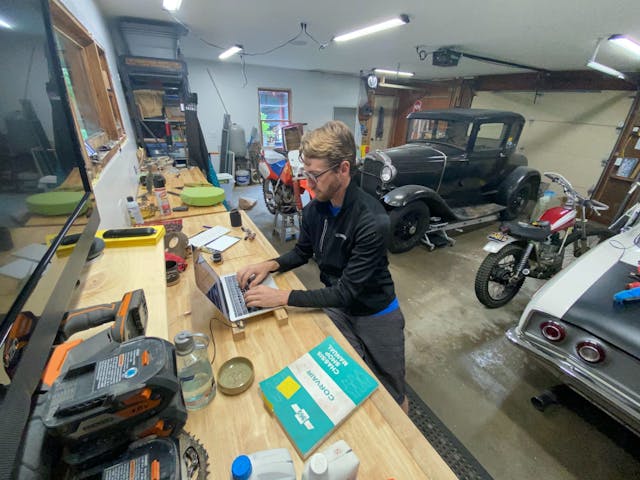
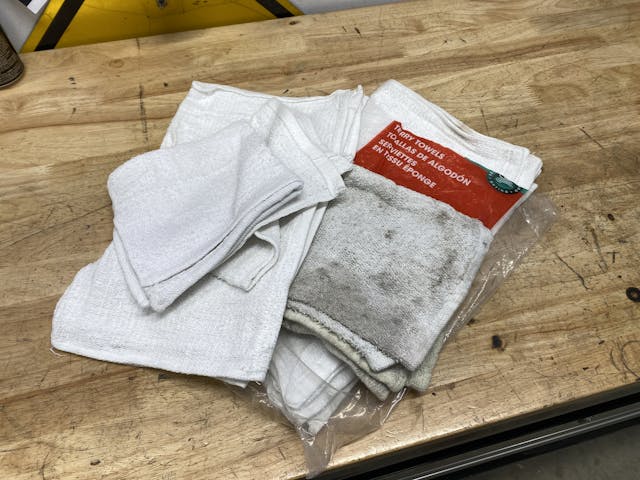
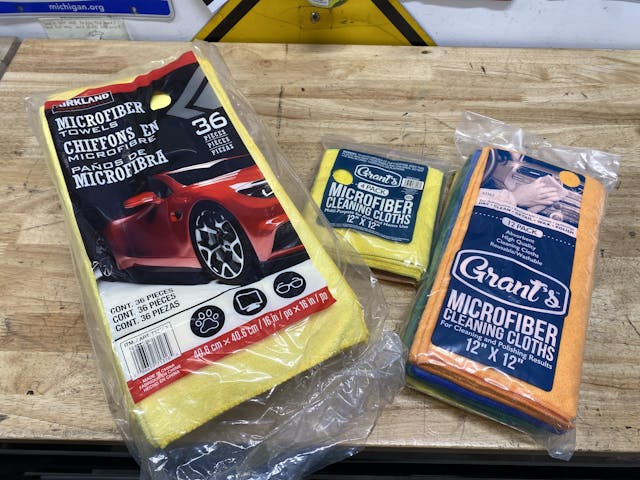
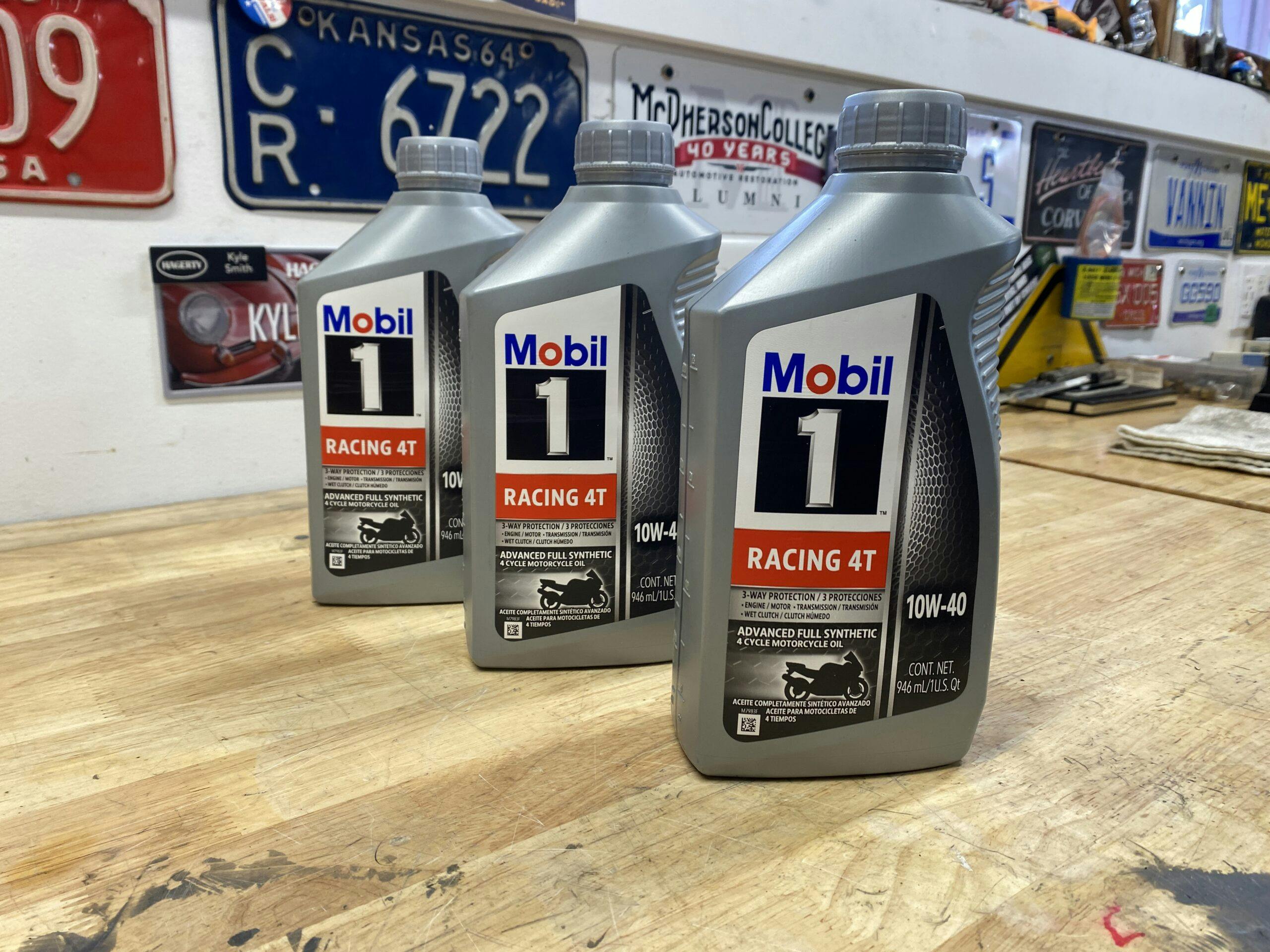
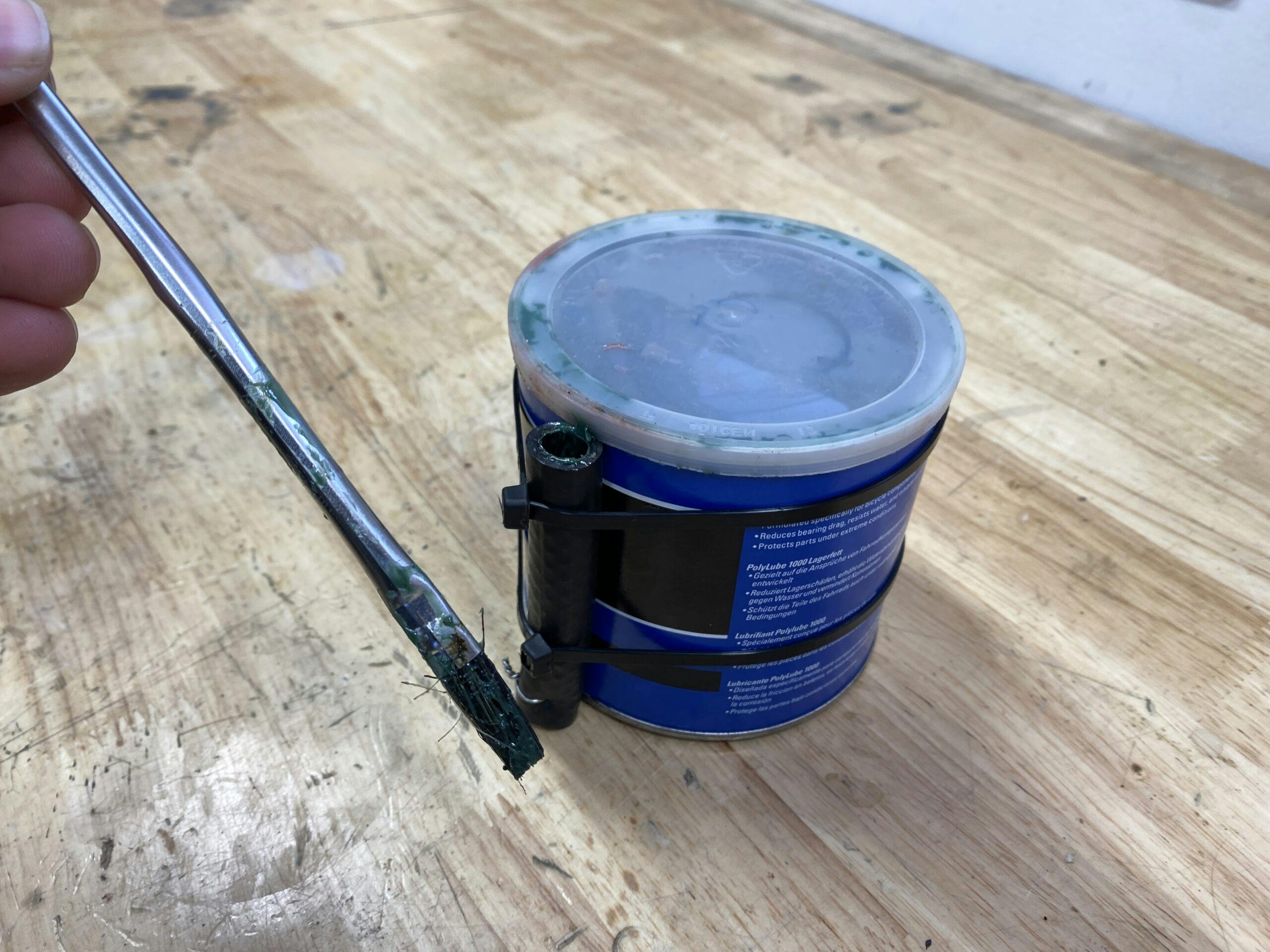
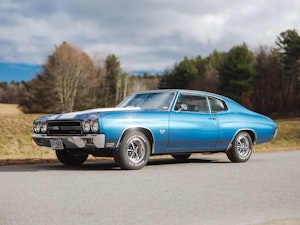

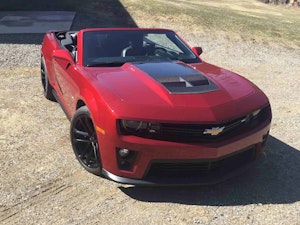





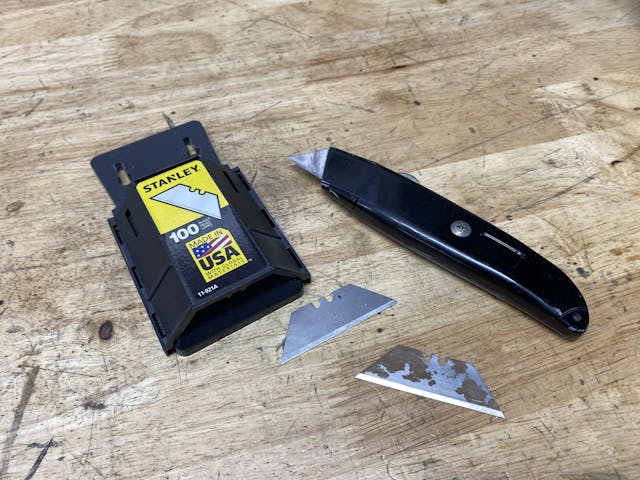
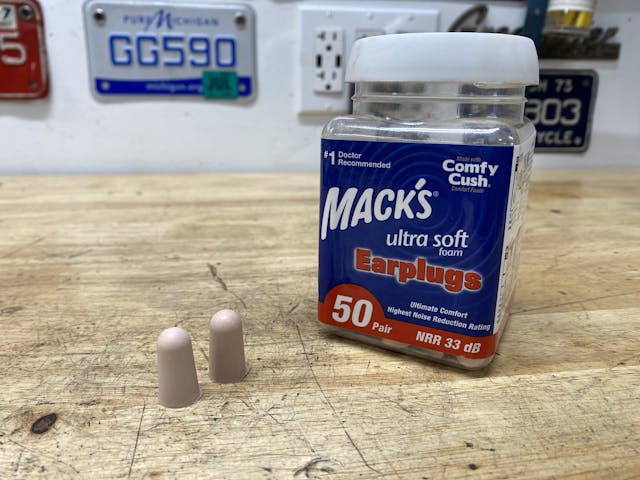

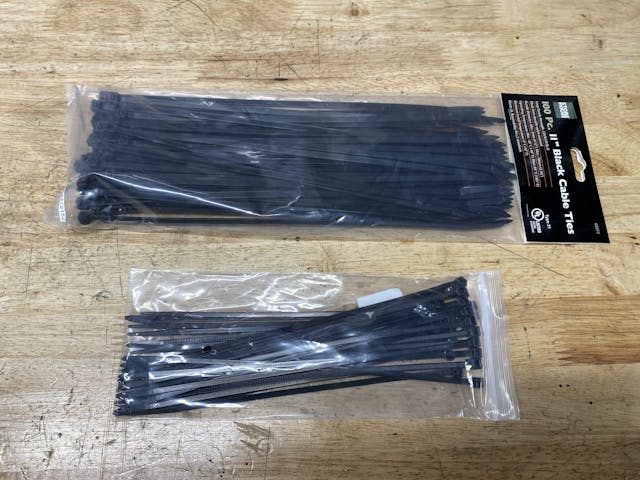
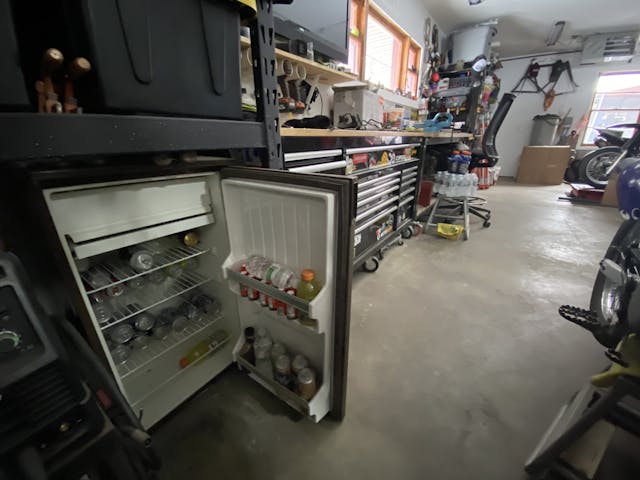

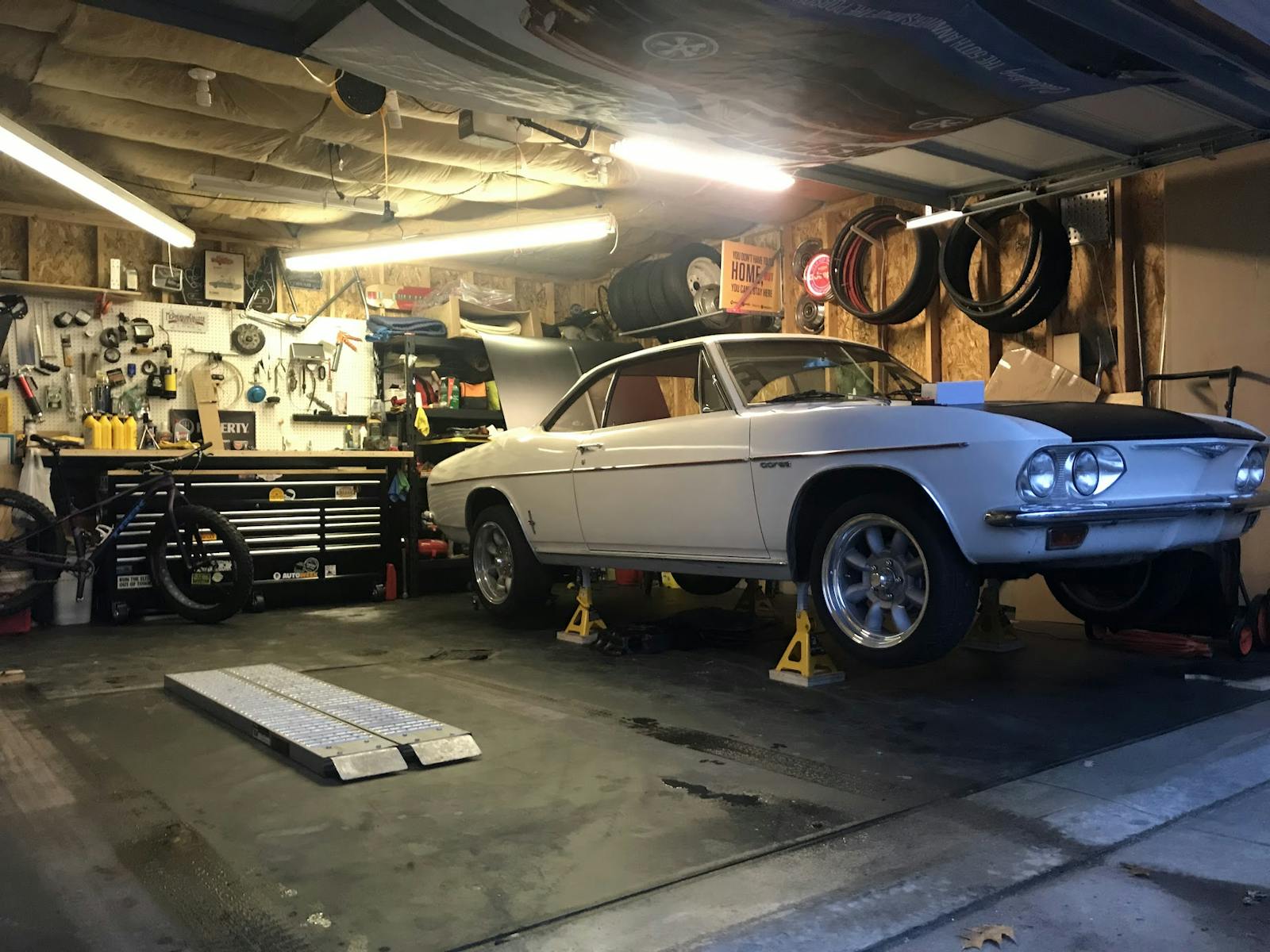










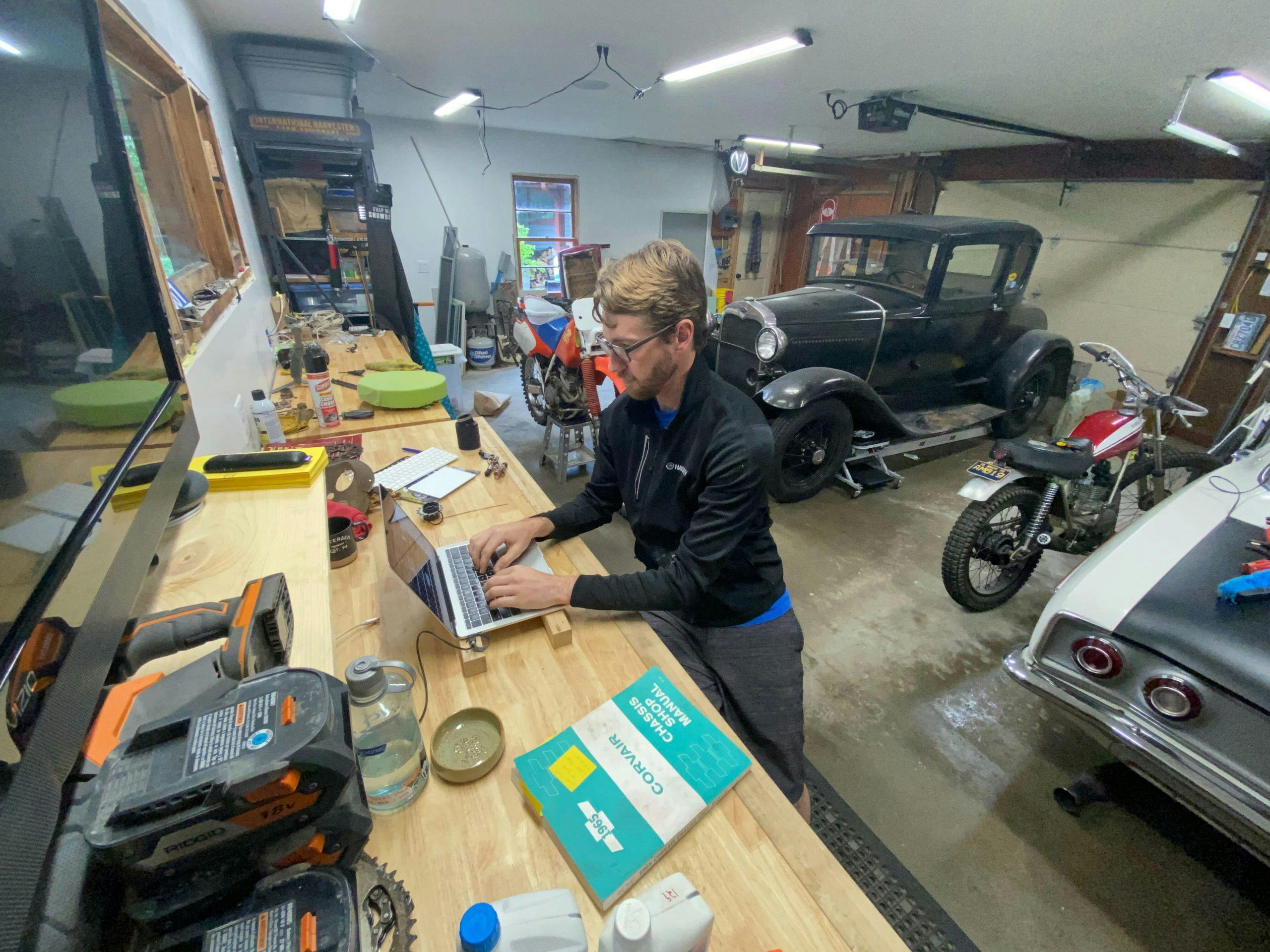
I recently got some butt and spade connectors with built-in shrink sleeve that work great. You need a good wire stripper (no comments, please) and crimper and heat gun to go along, but it makes the connections so much better.
A five gallon bucket filled with oil dry or cat litter for fluid spills. With that Corvair in the garage, I’m surprised that isn’t on the list.
Band aids? We don’t need no stinking band aids.
Busted Knuckles and some blood are our badge of honor!
The truth is if you work on cars enough you expect to bleed and only stop if you may get it on the upholstery.
Also if you grab something hot often you see smoke or smell it before you feel it though the calluses. Not kidding here.
VERY high grit wet-dry sandpaper is a must for me. It can be used to polish, de-burr cut surfaces, sand (of course), and be pressed into service for any number of different applications. I find it a handy way to grip items when your hands are greasy. Holding a sheet of high grit sandpaper to remove a stubborn oil filter is a life changer (or to improve the grip on a wrench when my hands are greasy)! Bonus use: use it to grip hard to open jar lids, my wife even uses this trick!
Don’t forget duct tape
I personally dislike the crimp-on wiring terminals that have the plastic ends – I either cut them off, or buy the non-insulated style. Then finish them with proper shrink tubing. Makes for a more professional appearance and better sealing.
Only other things I’d add to the list are fittings, connectors, & adapters for plumbing. Nothing delays a project like trips to the store.
And I never drink beer while working on something; only maybe after the work’s done & tested.
Cut the plastic off the store bought crimp fittings, problem solved.
I agree – never use any cheap crimp on or butt connectors. I only replace with factory pins/connectors and crimp with the proper tool – not the Walmart crimping tool for generic butt connectors. In the case of a wire repair it is always solder and shrink wrap.
Ah yes – the beverages, adult or otherwise. Especially needed to take 5 or longer when the $%@*! thing won’t fit or remains stuck or cracks off etc, etc. These moments of thoughtful hydration are very necessary. It’s much better to walk away and enjoy the beverage than to compound the problem with additional damage.
gloves and hand cleaner
I have all those item in my garage but I also have coolant/antifreeze and oil specific to vehicles that aren’t in the family anymore.
Music
Liquid Wrench, or better, Maltby’s or PB Blaster. Spray lubricants and protectants, such as WD40 or Boeshield T-9 (amazing for re establishing electrical continuity). An assortment of spade connectors, male and female, including insulated types. DOW RTV (high temp, and properly capped, will last a very long time). DOW Silicone high vac grease products (Dow 4) for oil filter gaskets, neoprene O rings and a lot of other stuff. Duct tape for cutting braided hose. Anti Seize for spark plugs and other fasteners that you might want to remove on a regular basis. or for parts the may be exposed to moisture, such as brake discs or drum brake parts. GLOVES. Nitrile, of course. The thick ones, as they are reusable, and do a better job of protecting against skinning knuckles. Work gloves, the padded ones, to protect from the usual slipped wrench or snap back from the electric or pneumatic tool. Safety glasses. An old sweat shirt, long sleeved, to keep the grease off your arms. Hand Cleaner. I could do this all day… I just changed a couple of wheel bearing hubs on my Mazda, and used just bout all of the stuff listed above, and nearly none of the stuff listed in the original article.
How about a nice charged Fire Extinguisher , just incase 🙁
When it comes to the tube on the side of a can of grease, I just make a hole in the lid and stick the brush in there.
Yup, got all of those and more!!
I have them all in good supply OTHER than ear plugs. If you raced SCCA in the 1970’s and stood on the grid with Mazda RX-3…..you have no hearing today!!!
I keep 1 and a half case of Valvoline VR-1 conventional oil at all times. Getting hard to find but it’s what I use in my 1946 to 1975 stable of vehicles.
Add a metal can w/lid for used rags or toss them (not very green). I know that is old school but still valid today. I did have a buddy who had rags ignite one night….not fun and lost a vehicle.